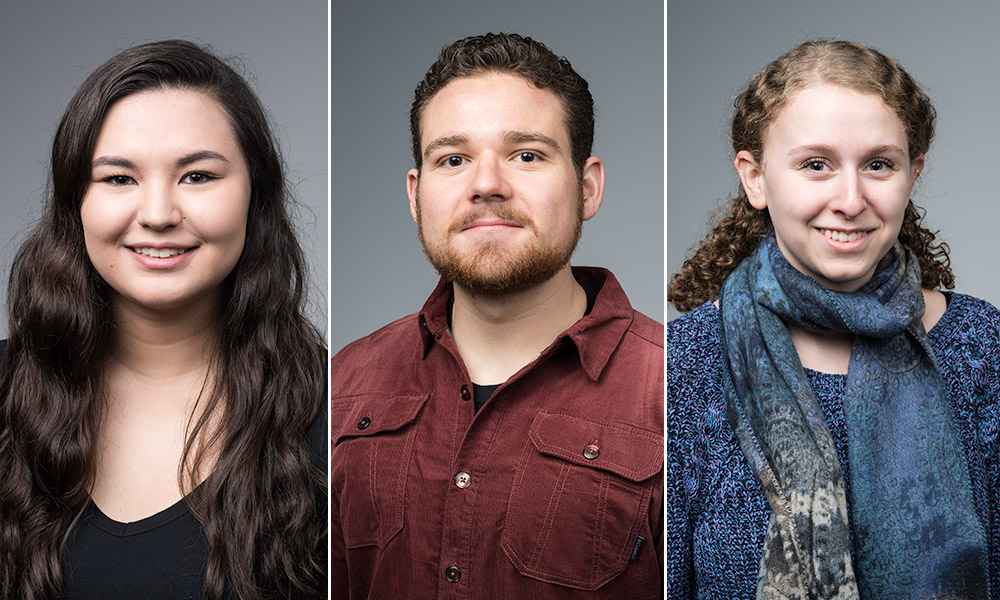
Rochester juniors receive Goldwater Scholarship for science achievement, research promise
Three members of the University’s Class of 2020 are recipients of the Barry M. Goldwater Scholarship, a prestigious award for undergraduate science majors.

Can the laws of physics untangle traffic jams, stock markets, and other complex systems?
Gourab Ghoshal is using the fundamental laws of physics to untangle the complex systems behind human behavior, urban planning, and social networks.
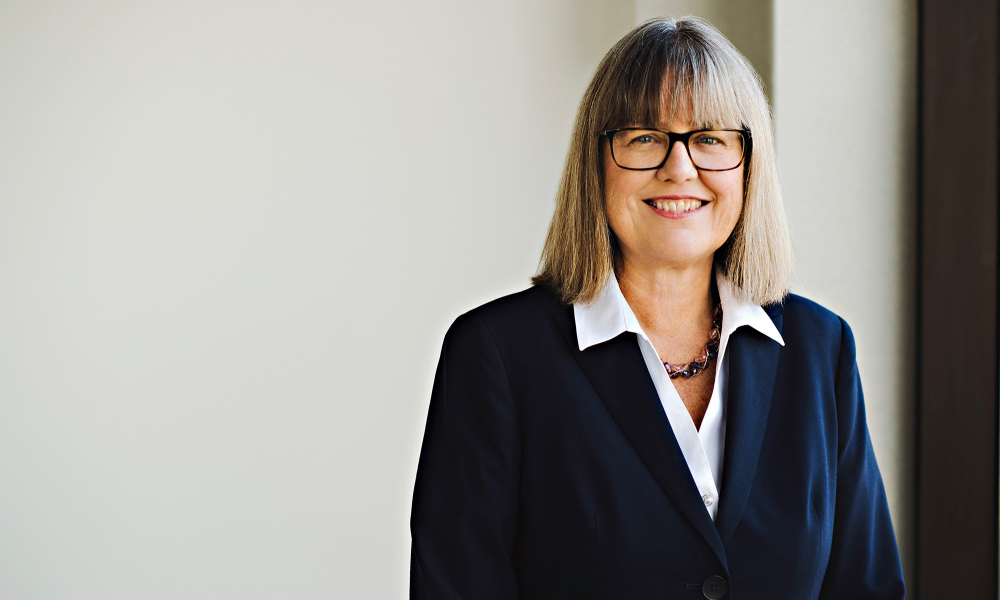
Nobel Prize recipient, alumna Donna Strickland to deliver 2019 College Commencement Address
Donna Strickland ’89 (PhD), pioneer in the field of pulsed lasers and a 2018 recipient of the Nobel Prize in Physics, will deliver the 169th College commencement address on Sunday, May 19.
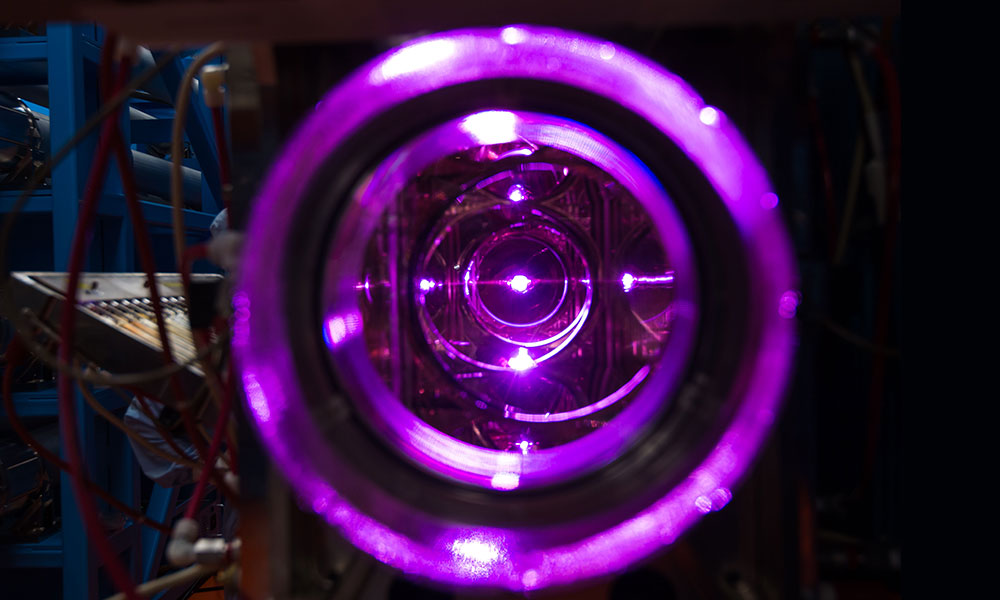
The year of the laser
In addition to their Nobel noteworthiness, Rochester researchers continue to develop new ways to apply lasers in research, medicine, and everyday life in 2018. Because frankly, we’re big on lasers.
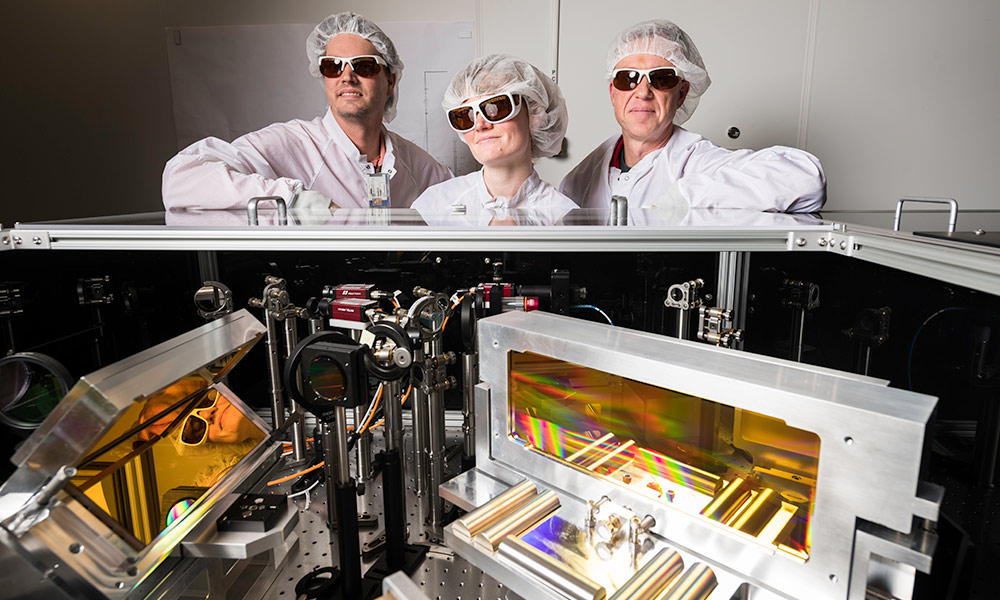
In the lab where it happened: Nobel science in pictures
Today’s Rochester researchers are taking science developed at the Laboratory for Laser Energetics to develop the next generation high-power lasers and to better understand the fundamentals of high-energy-density physics.
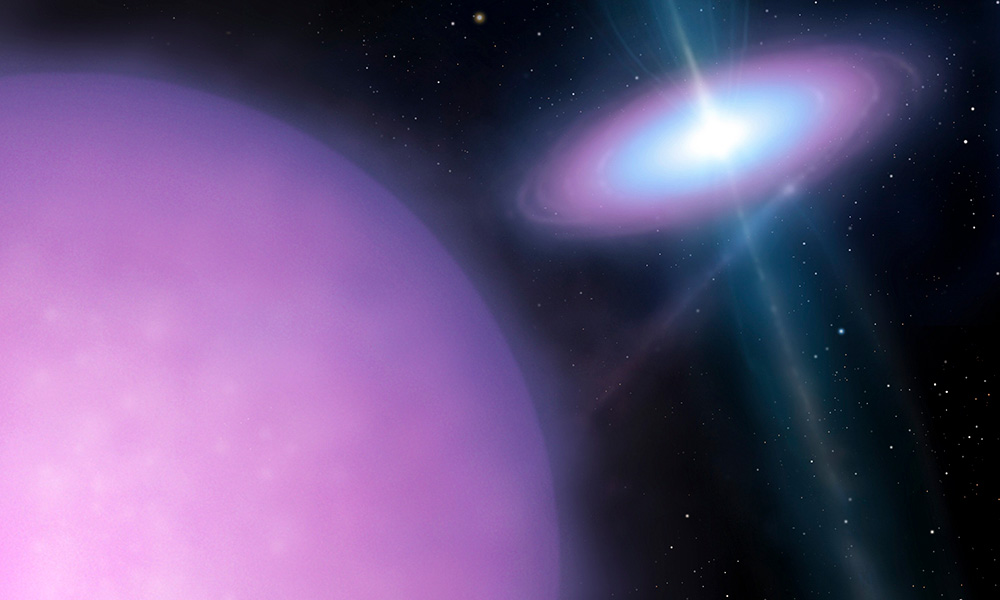
Researchers detect high-energy radiation from ‘weird’ star system
Rochester researchers are part of an international collaboration of scientists that has, for the first time, detected extremely high-energy gamma rays from one of the most powerful star systems in the Milky Way.
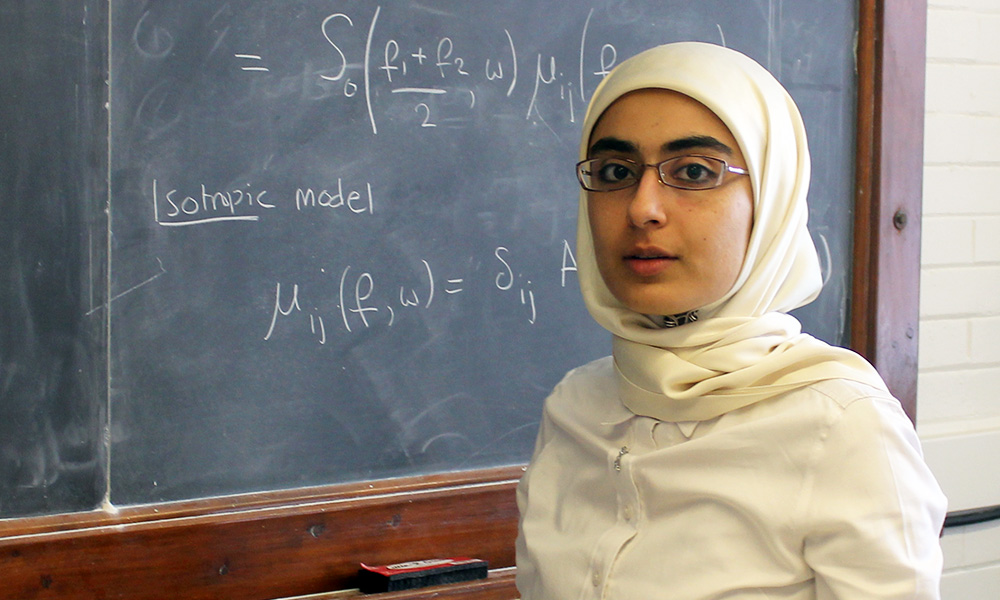
Physicist wins award to support ‘re-entry’ of women scientists
It is an issue for women in all academic fields, but especially in STEM fields. After two difficult pregnancies interrupted her career studying quantum optics, a fellowship is helping Asma Al-Qasimi get back to the lab.
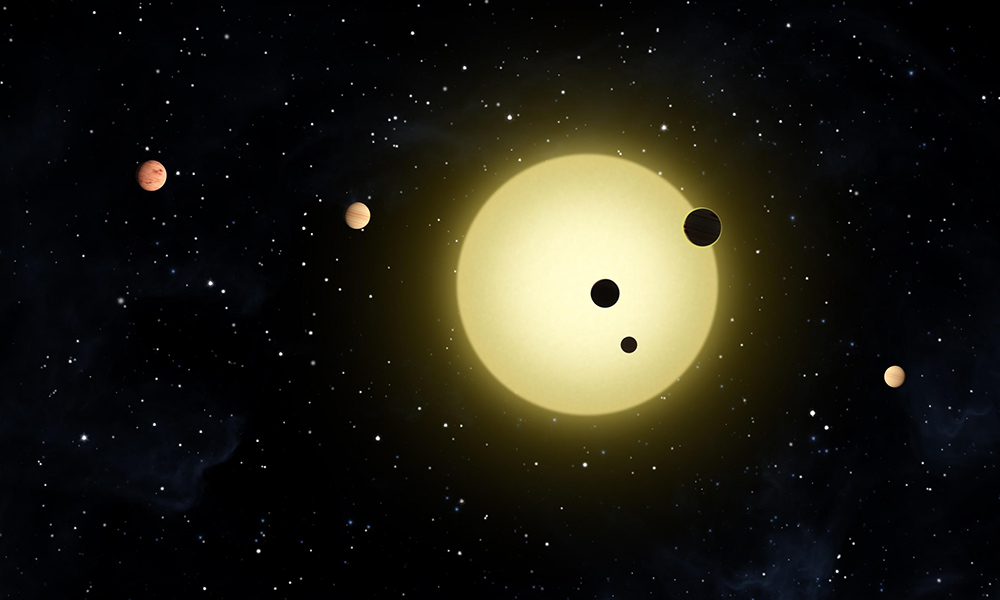
How might we detect possible intelligent life beyond Earth?
“There’s so much to look at, and we’ve done so little of it so far,” Rochester professor of astrophysics Adam Frank told NPR’s All Things Considered.
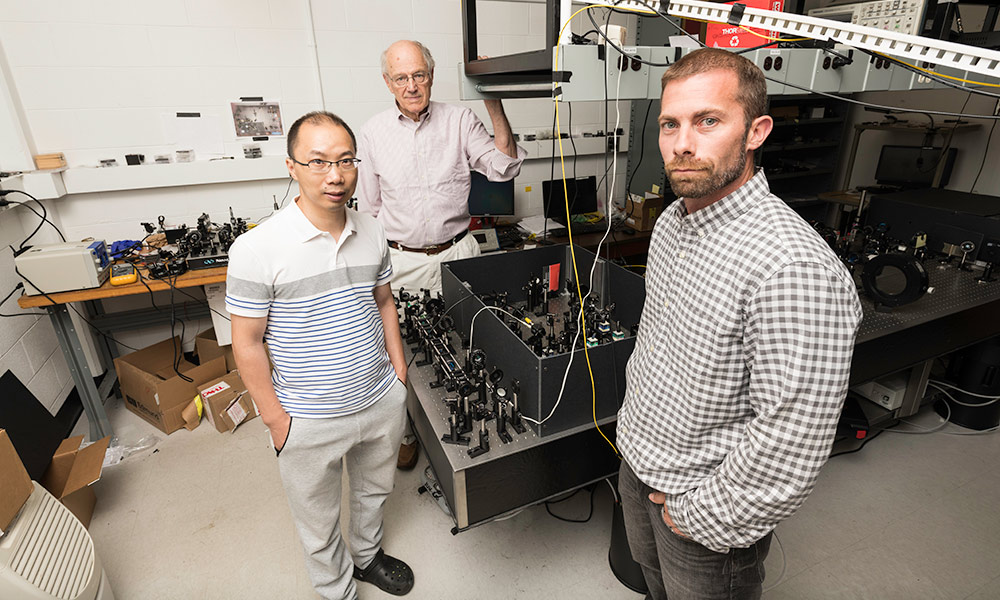
Wave particle duality of light: Resolving quantum ‘weirdness’
For 90 years physicists have known that incompatibly opposite properties are inherent in all elementary particles. Now Rochester researchers say they’ve resolved this weird and inescapable wave-particle duality.
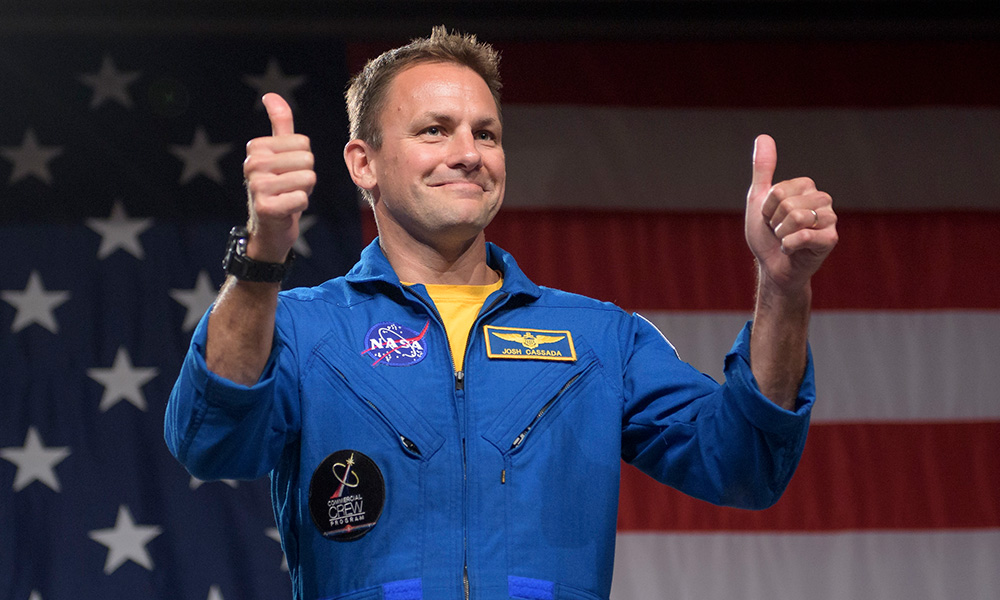
An alumnus in space
University of Rochester alumnus Josh Cassada ’00 (PhD) has been named one of nine NASA astronauts making up the first U.S. crew in history to journey to space in American-made, commercial spacecraft. Cassada would be the third Rochester alumnus to go to space, joining Jim Pawelczyk ’82 and Ed Gibson ’59.
